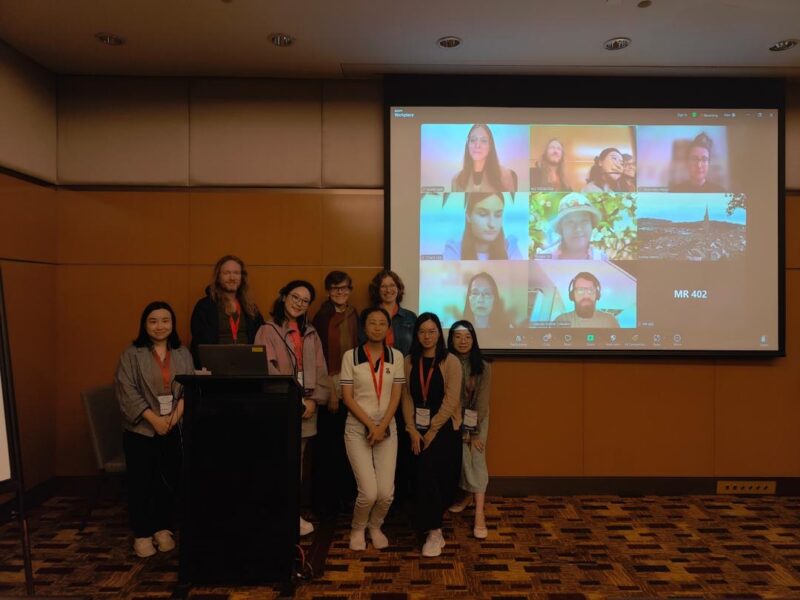
Online and onsite attendees of Ana’s presentation
The 21st AILA World Conference is in full swing, and Day 2 has brought us some incredibly insightful presentations showcasing the current scholarship of applied linguistics. In this blog post, I share my experience as an online presenter and attendee during day 2.
This year’s conference theme is “Linguistic Diversity, Equity, Inclusion, and Sustainability,” seeking to understand the pivotal role of applied linguistics in tackling worldwide issues and fostering a more equitable world. The theme could not be a more pertinent topic in the current climate where diverse, inclusive, and sustainable research is becoming increasingly challenging due to the degradation of knowledge stemming from various factors, such as the surge of AI in academic publishing and the loss of the human element in research, as highlighted by Distinguished Professor Piller in her thought-provoking keynote speech “How can we make our research diverse, inclusive, and sustainable?” during the conference’s opening day.
For me, the day kicked off, tuning in to the ‘Language in Society’ track, where several presenters shared their work in a symposium entitled ‘Minority Language Learning for Adult Migrants in Europe’. The symposium shared their findings about the struggles of migrant language learning from Sweden to the Faroe Islands, leading to boundary maintenance among Hungarian diasporic speakers in Catalonia to understand the lived experiences of adult migrants as they pertain to migration and what are considered ‘worthy’ or ‘useful’ languages to learn.
Following, Professor Dr. Catherine Nickerson delivered the third keynote, which delved into the future of applied linguistics in the context of business and professional communication. Dr. Nickerson’s speech was both inspirational and gave an incredible glimpse of where the field is moving and how ‘we can bridge the gap between research and practice’ in ESP.
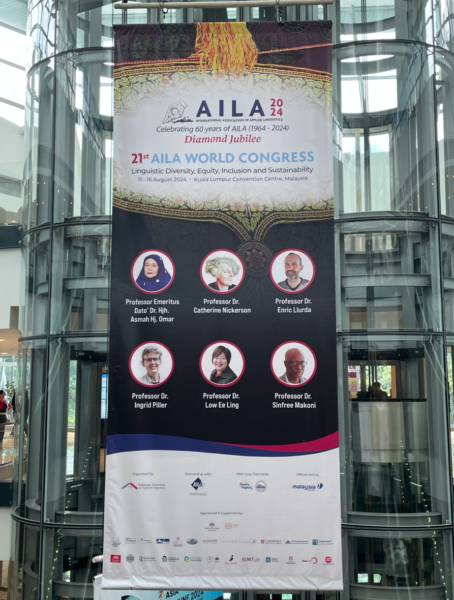 In the afternoon, it was my turn to present. I was delighted to contribute to a symposium on ‘Language Diversity, Inclusivity and Sustainability’ by sharing my PhD research findings on Family Language Policy and the intersectionality of digital technologies and transnationality in Spanish maintenance. My presentation touched on how private and public language policy domains are interconnected and fed off each other and that technology can be a double-edged sword in heritage language maintenance. However, as voiced by parents, technology also has many positive applications in language learning. I concluded with some suggestions for making heritage languages more visible in schools by using technology and learning from the experiences of the home domain.
In the afternoon, it was my turn to present. I was delighted to contribute to a symposium on ‘Language Diversity, Inclusivity and Sustainability’ by sharing my PhD research findings on Family Language Policy and the intersectionality of digital technologies and transnationality in Spanish maintenance. My presentation touched on how private and public language policy domains are interconnected and fed off each other and that technology can be a double-edged sword in heritage language maintenance. However, as voiced by parents, technology also has many positive applications in language learning. I concluded with some suggestions for making heritage languages more visible in schools by using technology and learning from the experiences of the home domain.
My co-presenter during the symposium, Silvia Melo-Pfeifer, a leading member of the Next Generation Literacies Network, presented the findings of her work titled ‘The (pseudo) institutionalisation of language diversity in the internationalisation strategies of universities: a comparative study in Germany and The Netherlands’. Silvia brilliantly discussed new bilingual policies of two universities, one in Germany and one in The Netherlands, explaining the ideologies behind the push for English in the German institution due to internationalisation goals vs the push for Dutch in the latter, which is linked to far-right ideologies. She described this imposition to adopt English in teaching and other university activities at the German institution as ‘academic blackmail’, given that this was imposed from the top down and used as a scholarly success metric.
Thank you, AILA, for this fabulous implementation of a successful hybrid conference. AILA has done a marvellous job of providing live access to streamed symposiums and keynotes while also giving online participants from all corners of the globe access to recorded sessions so AILA delegates can engage with the latest and most innovative research in applied linguistics from any time zone. Spaces like AILA2024 empower us scholars, especially early career researchers like myself, to contemplate how we can strive to produce more ‘diverse, inclusive, and sustainable’ research, as Professor Piller left us reflecting after her keynote speech. The AILA conference, with its focus on these crucial issues, is shaping the future of applied linguistics and inspiring hope for a more equitable world.

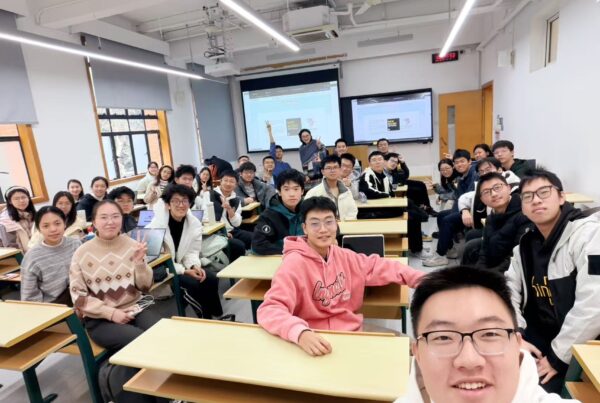
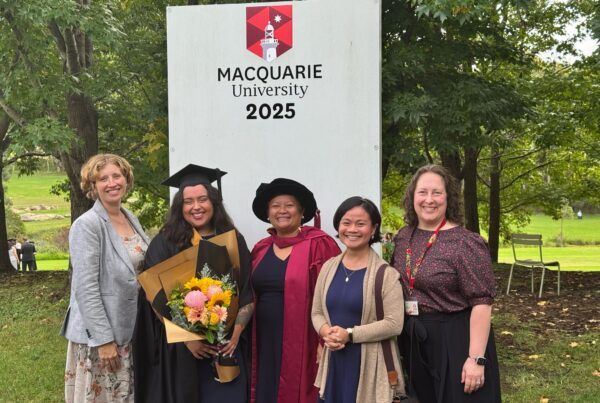
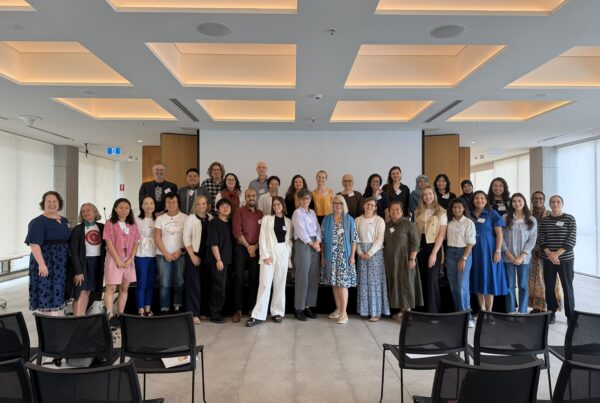


 This work is licensed under a
This work is licensed under a
Thanks Ana. I really enjoy reading your report. I totally agree AILA is very inclusive. Many of my postgraduate students are able to share the same platform meeting up with their favorite scholars here. It is indeed a wonderful memory for us.
Thank you Li Jia! It’s indeed been incredibly to be a ‘transitional’ AILA participant 😉 I hope to see you soon.